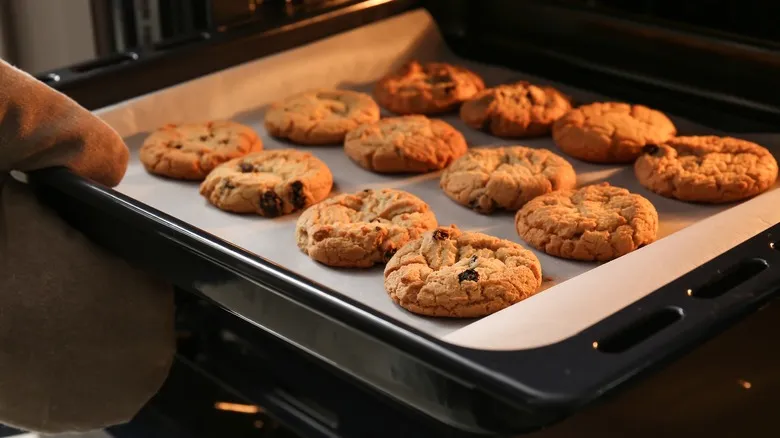Use room-temperature eggs
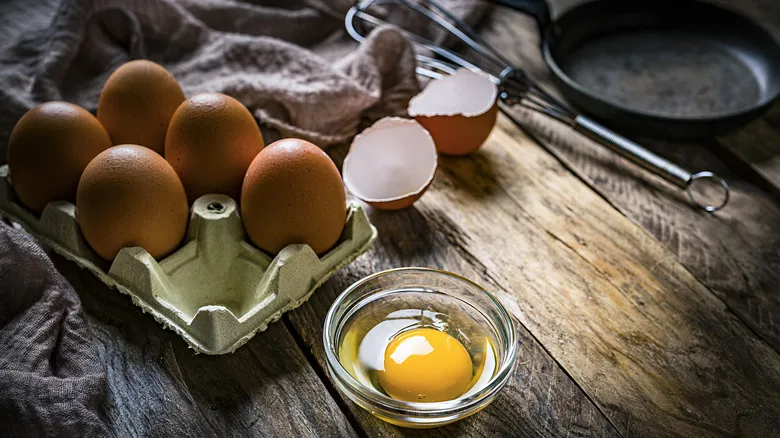
When preparing a batch of chocolate chip cookies, it's advisable to use eggs that are at room temperature. But what does 'room temperature' really mean? Typically, room-temperature eggs range from 68 to 70 degrees Fahrenheit. If your egg is still in its shell, you can gauge its temperature by holding it in your hand. If the shell feels similar to the warmth of your hand, it’s likely at room temperature. For cracked eggs, you can use a food thermometer to check the temperature or simply touch it with your finger. If the egg feels the same as your finger, it’s ready to be added to your dough.
So, how long does it take for eggs to reach room temperature? This varies based on the temperature of your kitchen. In a cooler environment, it will take longer for the eggs to warm up compared to a warmer kitchen. Generally, it can take anywhere from thirty minutes to two hours. However, be cautious not to leave your eggs out for more than two hours, as this could lead to the growth of harmful bacteria. Keep track of the time while your eggs are out for baking.
Warming your eggs in a pinch
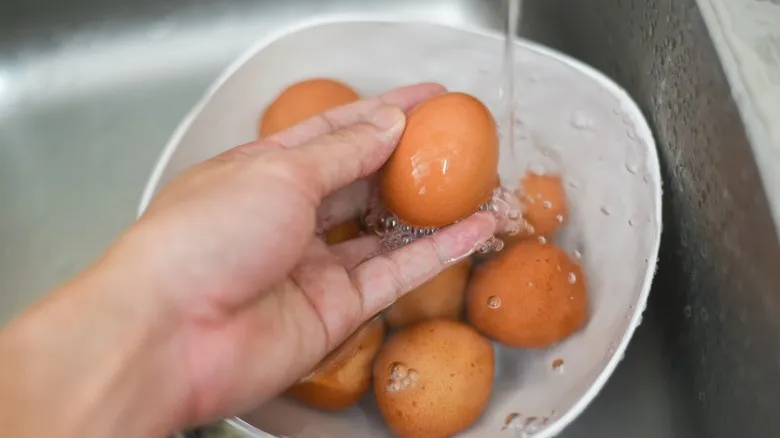
What if you forgot to take your eggs out? Your butter is already at room temperature, and your ingredients are measured and ready, but the eggs are still in the fridge — and you need to whip up your cookie dough quickly. No need to panic! You don’t have to settle for cold eggs. There are a few simple methods to bring your eggs to room temperature.
All you need for this method is a bowl, your eggs, and some warm — not hot — water. Just fill a bowl with warm water and gently place your eggs (still in their shells) into it. In about five minutes, your eggs should reach room temperature. If you need them even faster, you can hold the bowl under the tap and let warm water run continuously during the warming process, which will help speed things up. So if you forget to take your eggs out of the fridge until the last minute, don’t worry. Room-temperature eggs are just a few minutes away!
Recommended

Pickle Juice Is The Key To Bright (Not Overpowering) Pasta Salad
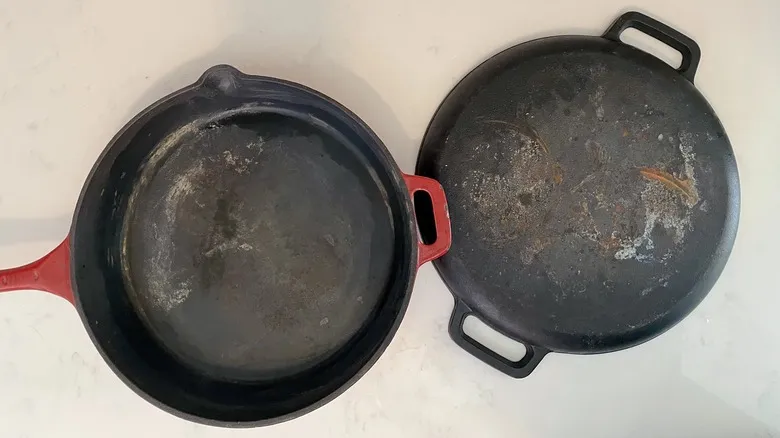
How To Season A Cast Iron Pan, New Or Old
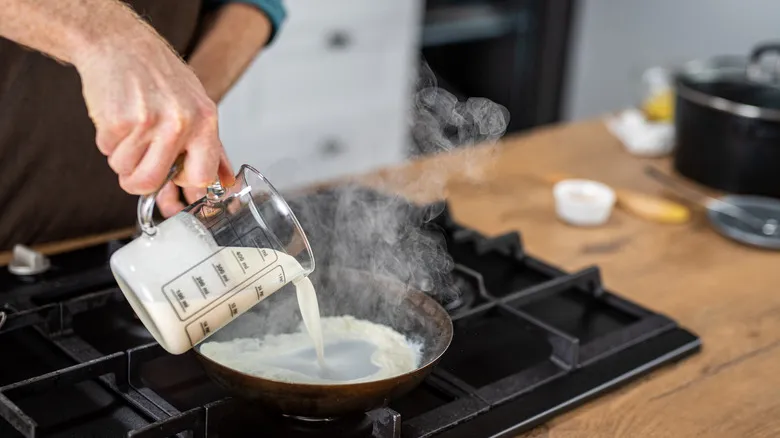
The Simple Tip For Evaporating Your Own Milk
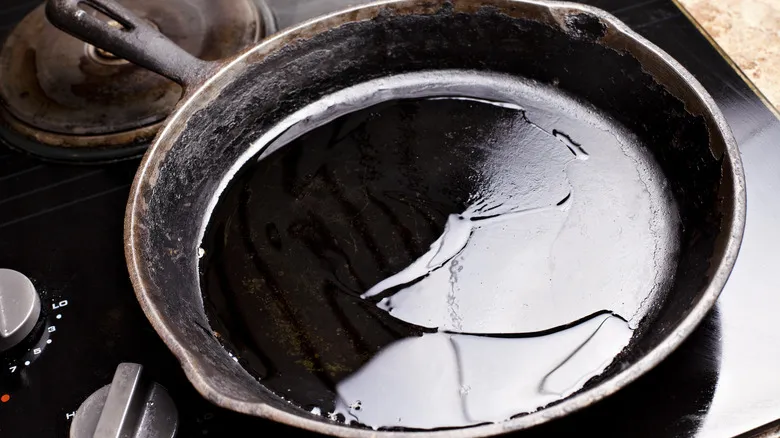
Are Metal Utensils Safe To Use On Cast Iron?
Next up

